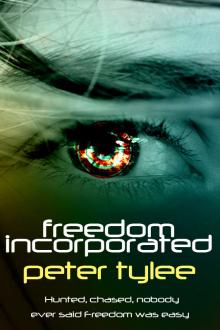Gift : 12 Lessons to Save Your Life by Edith Eger (ebook voice reader .TXT) 📗

- Author: Edith Eger
Book online «Gift : 12 Lessons to Save Your Life by Edith Eger (ebook voice reader .TXT) 📗». Author Edith Eger
If we’re to live free of shame, we don’t let others’ evaluations define us.
And most of all, we choose how we talk to ourselves.
Spend a day listening to your self-talk. Pay attention to what you’re paying attention to—that’s what you reinforce. These thoughts will influence how you feel. And how you feel is going to dictate how you act. But you don’t have to live by these standards and messages. You weren’t born with shame. Your genuine self is already beautiful. You were born with love and joy and passion, and you can rewrite your internal script and reclaim your innocence. You can become a whole person.
For as long as Michelle can remember, when people met her on the street they’d say, “I would give anything to be you.” Tall, thin, beautiful, professionally successful, with a lovely, soft energy that people wanted to be near, she was picture-perfect on the outside—and dying inside.
Countless times I’ve seen this devastating dynamic in my practice: driven husband, wife who is a very good actress—the “hostess with the mostest.” She’s faultlessly kind and generous to others, but not a very good caretaker to herself. He’s an actor, too, very loving and romantic when company is there, but in private, becoming more like her boss or parent, telling her what she should and shouldn’t do, how she should spend her time and money. By pleasing, placating, and accommodating in reaction to the husband’s dominance, the wife abdicates her adult power, lets him make all the decisions. And then gets even by depriving herself of food because it’s the one thing she can control. She detaches from and minimizes her feelings of powerlessness by literally minimizing herself—making her body smaller and smaller. In the direst cases, even when she wants to start eating again, she can’t. Her body rejects the nutrients.
Michelle had a very entrenched eating disorder by the time she began therapy (not with me—with a wonderful practitioner in her city). But it wasn’t anorexia that drove her to seek help—it was problems in her marriage. Her husband was often dismissive and unkind, leaving her feeling like a scared kid with an angry dad. She knew rationally that she was a strong, successful, middle-aged woman, not a powerless child. But inside, she was terrified to stand up to him. When his outbursts of anger began to worry and frighten their children, she knew she needed new tools.
But learning to stand up for herself meant opening up her intense shame—all the pain she was trying to hold down by starving. When she started eating again—a process I always recommend doing under supervision of a medical doctor or in a specialized in- or outpatient program—all the trauma and feelings she’d tried to keep at bay rose up like a tidal wave. Childhood sexual abuse, a mother who was dismissive and emotionally cut off, parents who punished her with beatings, or worse, turned her invisible, not speaking to her at all, treating her as if she wasn’t there. It was overwhelming to feel the terror and pain, to let the past in. She could only do it in small doses. She’d allow herself to feel, and then starve herself, allow herself to feel, then starve again.
The process brought up an excruciating fear of abandonment.
“I’ve always clung to the people I feel care about me, that see me, hear me, accept the real me,” Michelle said. “When I was a kid, it was a teacher I felt safe with. As I got older, it was a professor, then my therapist. There’s always a person I’m anxiously attached to. Logically, as an adult in my forties, I know I’m safe and cared for. Yet often I feel like that eight-year-old girl again, terrified that I’m going to lose love, terrified that I’m going to do something that’ll make others not care about me.”
Remember, you’re the only one you’ll never lose. You can look outside yourself to feel cherished—or you can learn to cherish yourself.
Three years since beginning therapy, Michelle has made tremendous progress. She’s eating healthy foods in healthy portions. She’s no longer exercising in excess. She’s able to tell her husband when his criticism is hurtful, and use mindfulness techniques to ease the fear responses in her body. And she continues to work on releasing the shame she carries, shame that emerges in three harmful thought patterns: it’s my fault, I don’t deserve it, and it could have been worse.
She told me, “I keep thinking, ‘Why didn’t I do things differently?’ Logically, I know it wasn’t my fault, the things that happened to me, but there’s a part of me that’s still struggling with really believing it.”
If you want to take charge of your thinking, first examine what you’re practicing, and then decide: is it empowering or depleting me? Before you say anything, especially to yourself, ask, “Is it kind and loving?”
Michelle’s childhood ended when the sexual and physical abuse began when she was eight, just at the age when our frontal lobes begin to develop, and we start to think logically. We want to understand things. But certain things we’ll never understand. Sometimes we develop guilt in order to gain a sense of control over things that are completely out of our control, that we didn’t cause or choose.
“Stop trying to find a reason for the abuse,” I said, “and start practicing kindness. Pick an arrow that you follow.”
“Ah, kindness,” she said, letting out a low laugh. “Being kind to others has always come naturally. But being kind to myself is a struggle. At some level, I think I don’t deserve the





Comments (0)